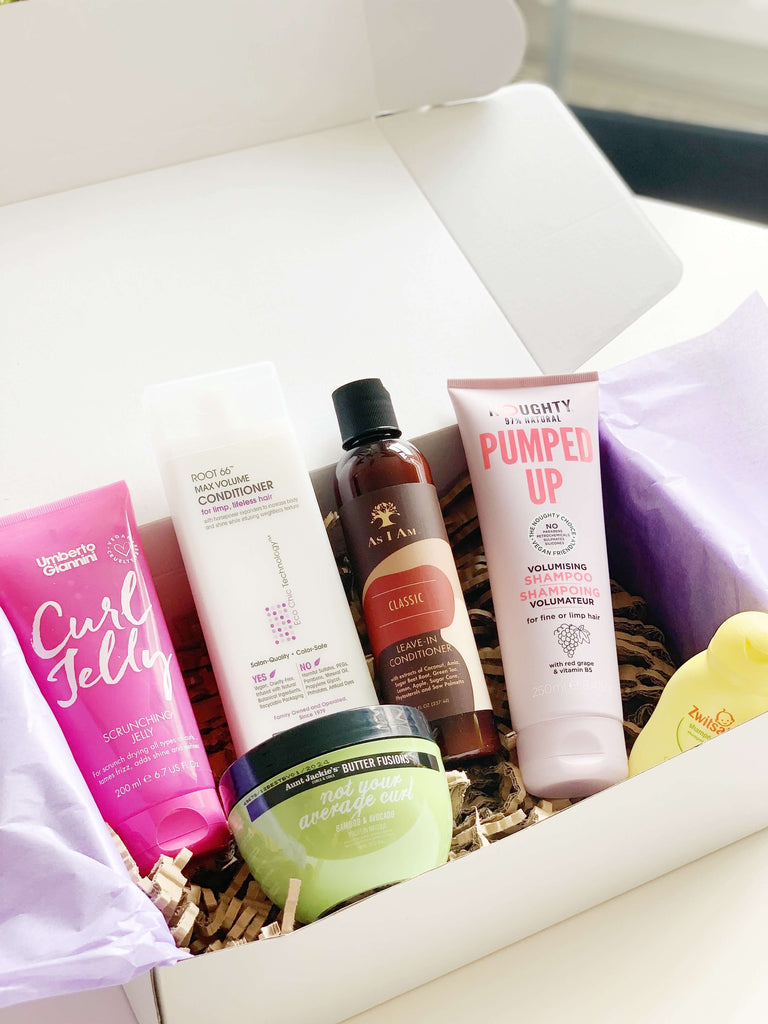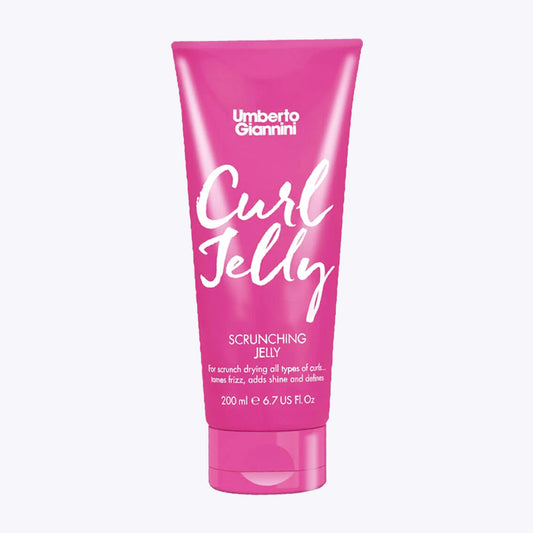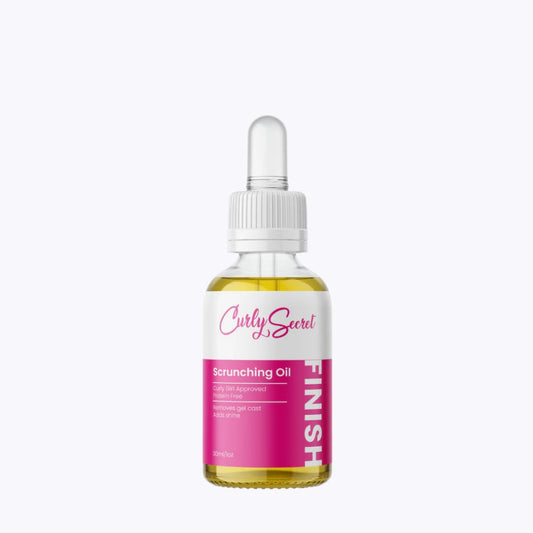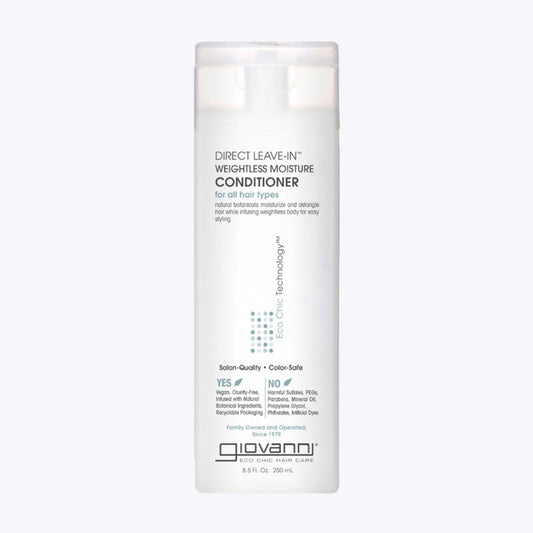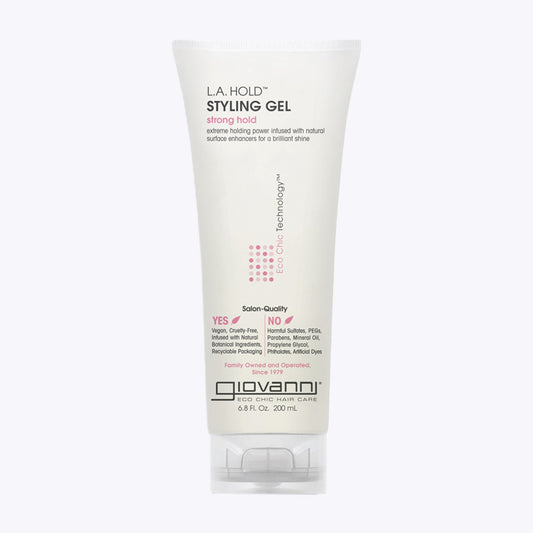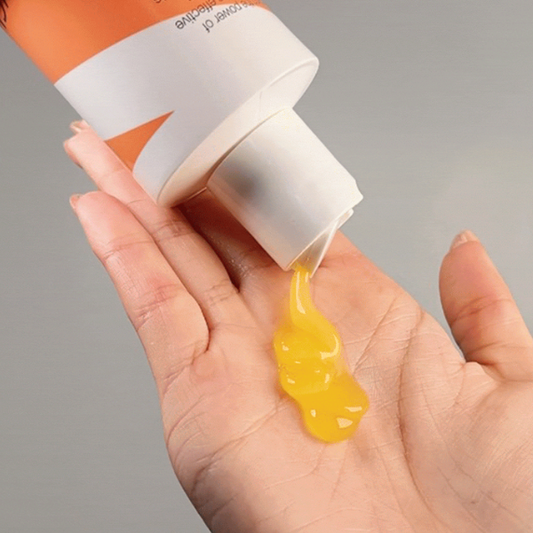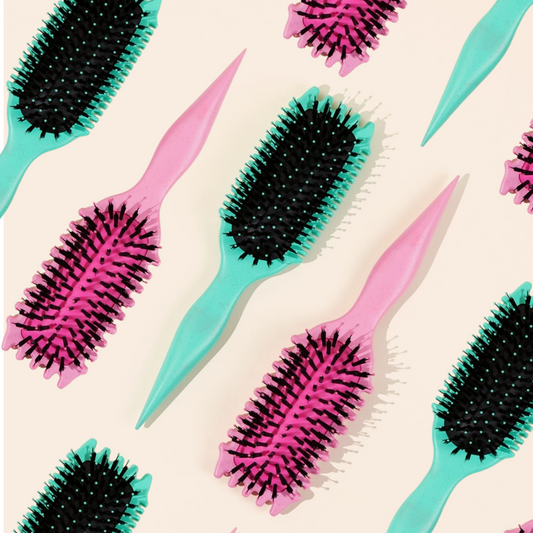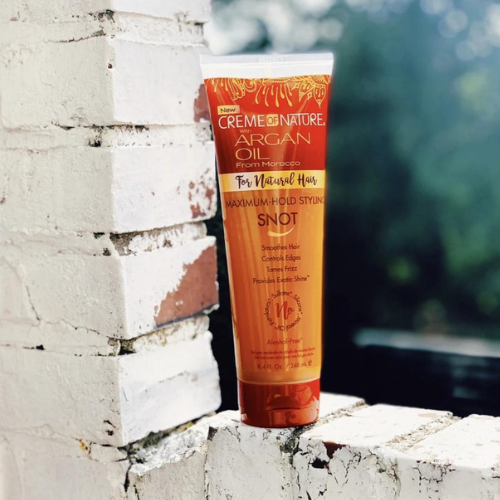Want to take good care of your curls in the winter? That can sometimes be difficult with the changing temperatures and dry air. Fortunately, with a few adjustments to your routine, you can keep your hair healthy and hydrated. In this blog, we share useful tips that you can apply immediately and answer a number of frequently asked questions about winter and curls.
Why does winter affect our hair?
In winter, temperatures are often lower, which affects humidity. Cold air is less able to hold water vapour, which means humidity drops. This has a direct effect on your hair and skin, which are less hydrated.
Indoor spaces are often heated by central heating, radiators or other systems. These systems heat cold air, but do not add moisture, making the air inside even drier than outside. Dry air “sucks” the moisture out of your hair, so to speak, causing it to dry out faster and become vulnerable.
Why do curls get dry in colder weather?
Hair naturally contains moisture that makes it supple and bouncy. This moisture keeps your hair healthy and helps your curls retain their definition. But in the winter, dry air strips the water from your hair, as the air always strives for balance. Dry air has little moisture and tries to compensate by stripping water from your hair. This makes your hair drier, less elastic and ultimately more fragile.
Why is less moisture in your hair not good?
When your hair dries out, it loses its elasticity. The less moisture in your hair, the stiffer and less flexible it becomes. This makes your hair vulnerable to breakage. For curls, dehydration also means that you lose definition and are more likely to get frizzy. Well-hydrated hair is essential to keep your curls bouncy, healthy and beautiful.
7 tips to care for your curls in winter
Tip 1: Use a hair mask every week
We actually recommend using a hair mask all year round, but it is extra important in the winter. The colder temperatures and dry air can dry out your curls faster. A special hair mask for curls nourishes your hair intensively, helps it stay hydrated and prevents dryness and frizz.
Additional tip: Do you often find hair masks too heavy, or are you curious about how they work for curls? Read more about hair masks here.
Tip 2: Use a leave-in conditioner
A leave-in conditioner protects your hair between washes and forms the basis for your styling. It prevents dehydration and maintains the moisture balance of your hair. This is especially important in the winter, because your hair loses moisture faster. If you are not using a leave-in yet, now is the time to start!
Tip 3: Use sealing hair products such as gel and oil
As we mentioned earlier, your hair can dry out due to the colder air. It is therefore important to protect your hair and prevent moisture loss. You can do this by incorporating a good gel into your routine. Gels contain polymers, ingredients that form a thin layer around your hair. This layer helps your hair to stay in shape and at the same time offers protection against external influences, such as dry air. So it not only works as a styling product, but also as an extra protective layer.

In addition to gel, it is wise to use a hair oil in your winter routine. Oil has a hydrophobic property, which means that it is water-repellent and forms a barrier around your hair. This ensures that moisture is retained well, which helps prevent dehydration.
Additional tip: Do you have extremely dry hair? Use an oil after a leave-in conditioner to lock in moisture even better. This is known as the LOC method (Leave-in, Oil, Gel).
Tip 4: Use hair products without glycerin
Do you suffer from extremely frizzy and dry hair in the winter and the above tips don’t seem to work? Then you can take it a step further: try hair products without glycerin.
What is glycerin?
Glycerin is a humectant, which means it attracts moisture to keep your hair hydrated. In the winter, when there is little humidity in the air, glycerin still tries to find a balance. As a result, instead of taking moisture from the air, it can actually take moisture from your hair. This can lead to dehydration, especially in low humidity. Want to learn more about glycerin? Read more here .
Want to try this? Discover our collection of glycerin-free products.
Additional tip: Curious about how glycerin works exactly and why it affects your hair? Read our blog about glycerin here .
Tip 5: Keep washing your hair
Some people think that shampoos dry out your hair so much that it is better to wash less often or only use conditioner. This is not necessary! It is important to wash your hair at least once a week and use a conditioner or hair mask after each wash.
Regular washing keeps your hair clean and prevents product build-up, which helps other hair products work better. In addition, washing has a positive effect on your scalp: it helps prevent flakes, itching and dryness and provides a healthy base for your hair.
Tip 6: Avoid friction with scarves, hats and vests
In winter, you prefer to wear a warm hooded cardigan, a scarf and a hat. But did you know that these fabrics can cause friction, which can lead to tangles and sometimes even damage to your hair? Therefore, choose smooth fabrics, such as silk or satin, to protect your hair.
Additionally, you can wear your hair in a protective style, such as a loose bun or ponytail. Apply a small amount of oil or serum to the areas where the most friction occurs, such as the neck or the back of your head, for extra protection.

Additional tip: Want to wear a hat without damaging or frizzing your hair? Choose a hat with a satin lining. Shop our hats here and keep your hair healthy and shiny, even in the coldest months!
Tip 7: Take a look at your current routine
In the winter, your hair often needs more care than in the warmer months. It can therefore be a good idea to take a critical look at your current hair products. Have you been using the same conditioner for a long time? Then it can help to switch to a richer formula that offers more nutrition.
If you tend to use light products, consider trying heavier products that will nourish your hair more intensively and protect it from the winter cold. This can make all the difference for healthy, hydrated hair.
Need help finding the right winter routine? Check out the direct links to our collections or contact us . We'd love to help you!
